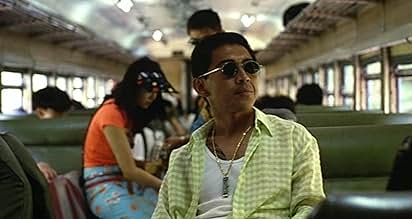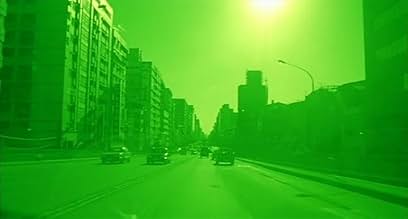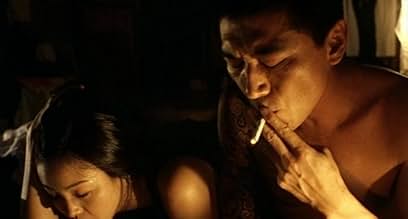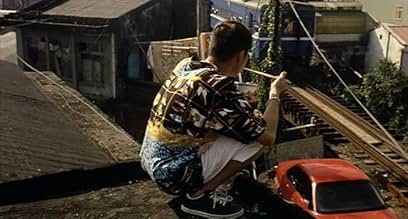IMDb RATING
7.2/10
2K
YOUR RATING
A glimpse at the lives of two petty criminals in Taipei.A glimpse at the lives of two petty criminals in Taipei.A glimpse at the lives of two petty criminals in Taipei.
- Awards
- 2 wins & 2 nominations total
- Director
- Writers
- All cast & crew
- Production, box office & more at IMDbPro
Storyline
Did you know
- TriviaConsidered by Cahiers du Cinéma to be one of the three best films of the 1990's, alongside The Bridges of Madison County and Carlito's Way.
- ConnectionsFeatured in Flowers of Taipei: Taiwan New Cinema (2014)
Featured review
While Hou is concerned with socio-political themes, Goodbye South, Goodbye's story is far less interesting than the method of its presentation. Not until the second screening did I care much about the events of the plot, but the intricate direction is amazing.
The acting appears very realistic, not, I think, because of great actors, but because Hou controls their environment so carefully. I feel they directly express less than the subtler expressiveness of Hou's style: long takes, colour filters, off-screen sound effects, vehicle-based dolly shots, compositions through doorways and over foreground obstacles, music.
But Hou doesn't even seem preoccupied by his motifs. Driving this film is a precise rhythm. Hou is perfectly willing to shuffle his scenes out of narrative order so long as it produces the desired change in tone and tempo. Also, some moments of dramatic importance are prequeled in the previous four or five (less relevant) scenes. And just before these consequential moments he pulls off the most interesting gimmick of all: long (3-4 minutes) shots of miniscule (?) narrative value; it's all so superficially dull!
Which seems to be the exact point. Successfully, Hou lulls us into a relaxed state-of-mind before hitting us on the head with a pivotal scene. Very manipulative but how clever! When you're in the safe hands of a proficient director, the devices they use to assault the senses become digestible. So, even though my sense of narrative timing and progression was confronted in Goodbye South, Goodbye, it didn't lower my level of appreciation. As for the story? Well....
But Lim Giong is terrific and so is his music!
The acting appears very realistic, not, I think, because of great actors, but because Hou controls their environment so carefully. I feel they directly express less than the subtler expressiveness of Hou's style: long takes, colour filters, off-screen sound effects, vehicle-based dolly shots, compositions through doorways and over foreground obstacles, music.
But Hou doesn't even seem preoccupied by his motifs. Driving this film is a precise rhythm. Hou is perfectly willing to shuffle his scenes out of narrative order so long as it produces the desired change in tone and tempo. Also, some moments of dramatic importance are prequeled in the previous four or five (less relevant) scenes. And just before these consequential moments he pulls off the most interesting gimmick of all: long (3-4 minutes) shots of miniscule (?) narrative value; it's all so superficially dull!
Which seems to be the exact point. Successfully, Hou lulls us into a relaxed state-of-mind before hitting us on the head with a pivotal scene. Very manipulative but how clever! When you're in the safe hands of a proficient director, the devices they use to assault the senses become digestible. So, even though my sense of narrative timing and progression was confronted in Goodbye South, Goodbye, it didn't lower my level of appreciation. As for the story? Well....
But Lim Giong is terrific and so is his music!
- James Brown
- Dec 14, 1999
- Permalink
- How long is Goodbye South, Goodbye?Powered by Alexa
Details
Contribute to this page
Suggest an edit or add missing content

Top Gap
By what name was Goodbye South, Goodbye (1996) officially released in India in English?
Answer











